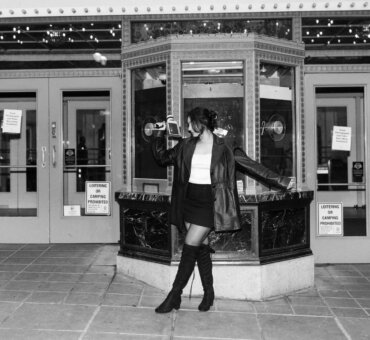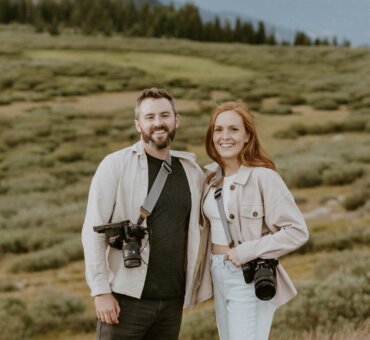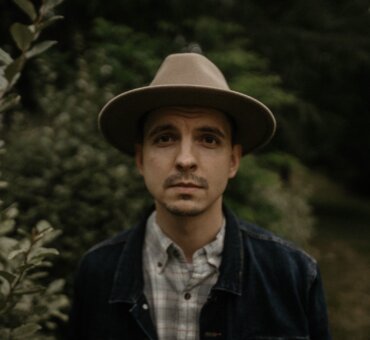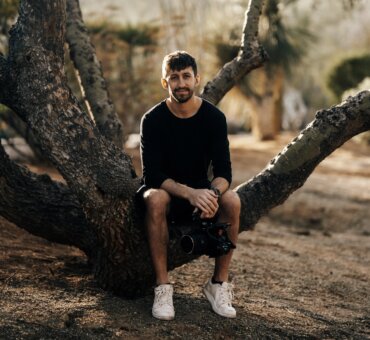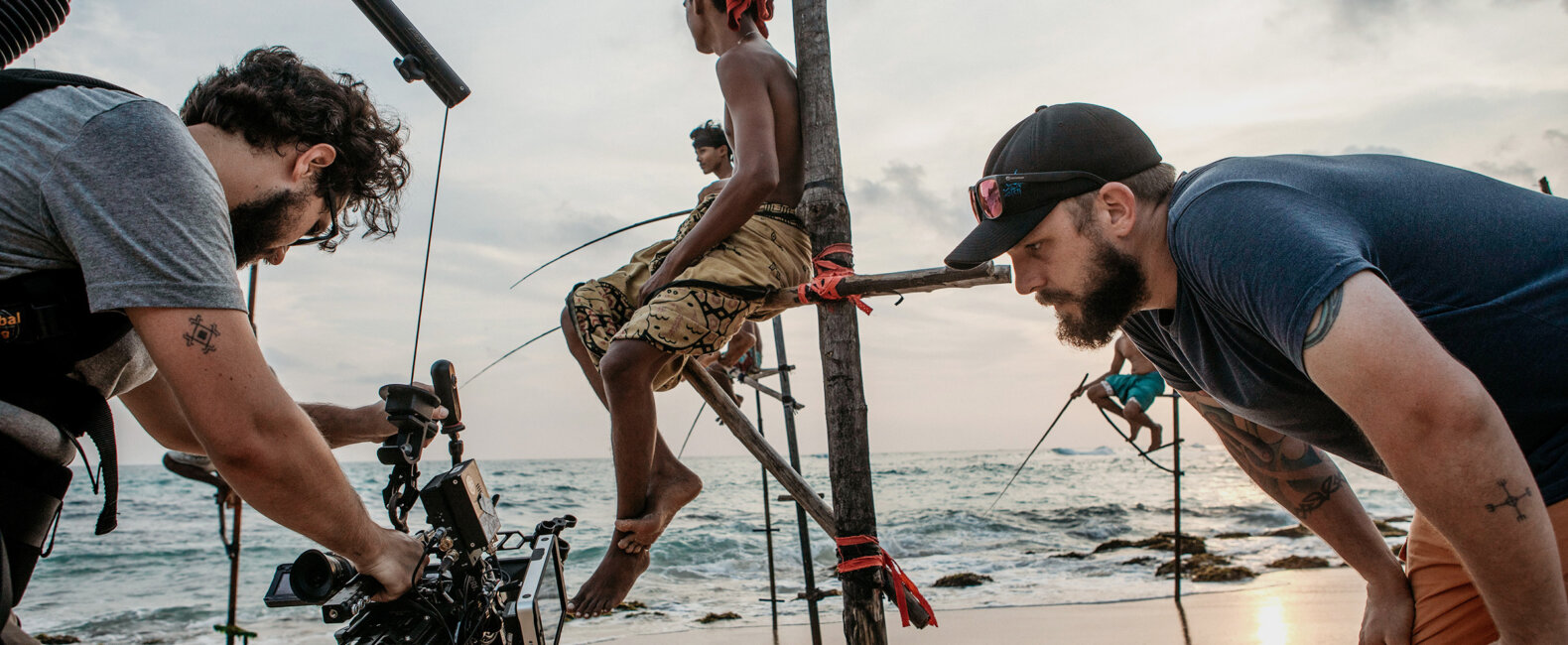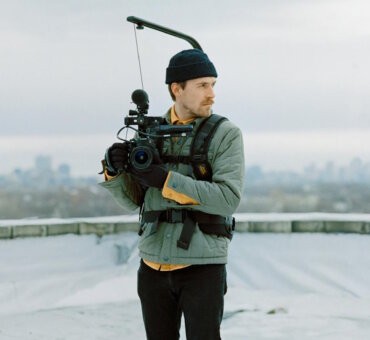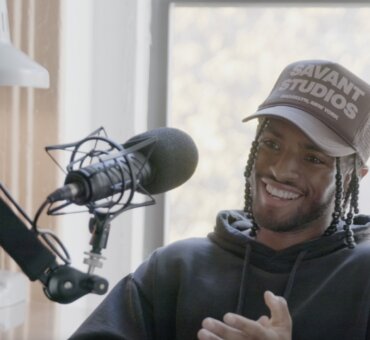Procrastination is often an act of self-preservation. When we know something will be difficult, we naturally tend to avoid it. This instinct may have been useful at some point (stone age, maybe?), but for us creatives, it can be our worst enemy. While we wait, problems seem to multiply, obstacles grow larger and while we’re busy thinking about those obstacles, the opportunity may be slipping away. Director Brent Foster experienced this first-hand; ultimately, it’s why he started his award-winning “While I’m Here” docu-series:
“I started this project because I missed out on the chance to tell the story of Frank Dymock,” Brent told us. “He was this man, this lovely man in our small hometown in Canada, that sharpened hockey skates for everybody and wouldn’t take a dime. I always promised myself I would go back and tell his story, but working as a photojournalist and traveling, I got caught up doing other things. I missed the chance.”
Frank died before Brent ever got the chance to tell his story and now he’s dedicated his series to capturing people’s legacy before it’s too late. But, while that missed opportunity resulted in a collection of beautiful films, the truth is he will never get that story back.
We may not all have an example this stark, but it’s probably happened to all of us in some form: inspiration strikes, we worry about how we’ll pull it off and the opportunity slips between our fingers. Why is that? The most common answer is one we’ve explored dozens of times on this blog: Filmmaking is hard. There are so many obstacles between us and the finished product — time, money, creative block, logistics — that it’s much easier to not do something. But we’re not here to not do something. We’re here to make films.
We had the chance to have an honest conversation with Brent about the obstacles he faces on a daily basis with his series — and, it turns out, they are obstacles we all face on a daily basis. He’s one of the most prolific documentary directors working today and has some great insight on how to overcome some of filmmaking’s most daunting roadblocks.
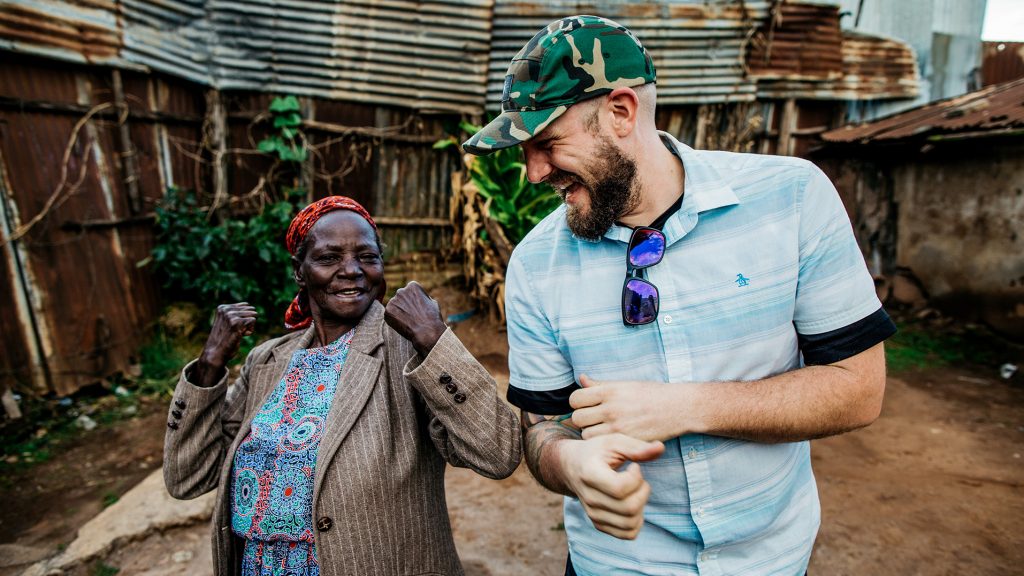
Under Pressure
The first film we put out there, it was such a learning experience for me as a filmmaker because I was transitioning from years of working as a photojournalist. So, I didn’t really feel a lot of pressure and I wouldn’t say there was a ton of expectations other than just doing justice to the idea and seeing the value of preserving these legacies.
But, after the first one, I definitely felt the pressure to get these stories right and make each one better than the previous. As I progressed as a filmmaker and a storyteller, the stories continued to come out, but they took a lot more time and there were definitely a few stories we decided not to tell. And for me, being a perfectionist, you really want it to be the absolute best and you want to do service to the character whose story you’re telling.
It’s more about knowing what you need to get the project done. At first, I thought, we’ll spend a year and we’ll tell six stories. Once we really got into it, though, we realized we needed to put more time and effort into it. As I grew as a filmmaker, learning that side of the business, I learned the tools I needed to approach a passion project well. The last couple of films we’ve been doing full director’s treatments, pre-interviews, and a lot of planning we weren’t doing before. For this last film in Nairobi, we had location scouting done before we arrived and our fixers were back and forth with our main character before we even arrived.
Application:
Pressure can be a double-edged sword. When we start, there’s not much of it because people don’t expect things from us. As we build and grow, though, we become known for our work and people begin to anticipate quality, vision, and our films generally being worth their time. The stakes become higher than ever. And this is where its duality can come into play. If properly addressed, pressure can be a great motivator. If not, well, pressure tends to make things implode.
It turns out preparation is the key for relieving pressure. The more advanced preparation and planning you can do, the more confident you can be in your creative execution. When we’ve tackled the details and logistics, we can stop worrying about them — then start focusing on over-delivering on those expectations you’ve been worrying so much about.
Imperfect Timing
There are times when I thought I would do one of these projects over the summer and then things got busy with the commercial work that pays the bills. But, I do think it’s important to have that time carved out regardless and figure out a way to build that into your schedule the same way you’re building out any other paid work and commercial work.
On the other hand, though, sometimes you need to wait until you’re ready to tell that story. This latest film (Enough: The Empowered Women of Korogocho) is one I’ve been planning on doing since 2009 or 2010 before this project even started. I honestly feel like we weren’t ready to make the film until we did if that makes sense. There were several stories that I’ve had where I kept coming back or I kept in touch with local fixers and producers to see where things were with the characters.
For me, if we had done that story back then it would not have been successful in terms of how tough it was to work out, regardless of your storytelling skills or your approach. It took us doing other projects to be able to get to the point where we were ready for that one.
Application:
Timing may be the most difficult part of a creative career. How do you know when to “go for it” and pull the trigger on your next film? Once you know what you need to accomplish something (see the first point), it can be easier to know when the universe is on your side — i.e. when producers are available, a location opens up, or you have enough funding you need.
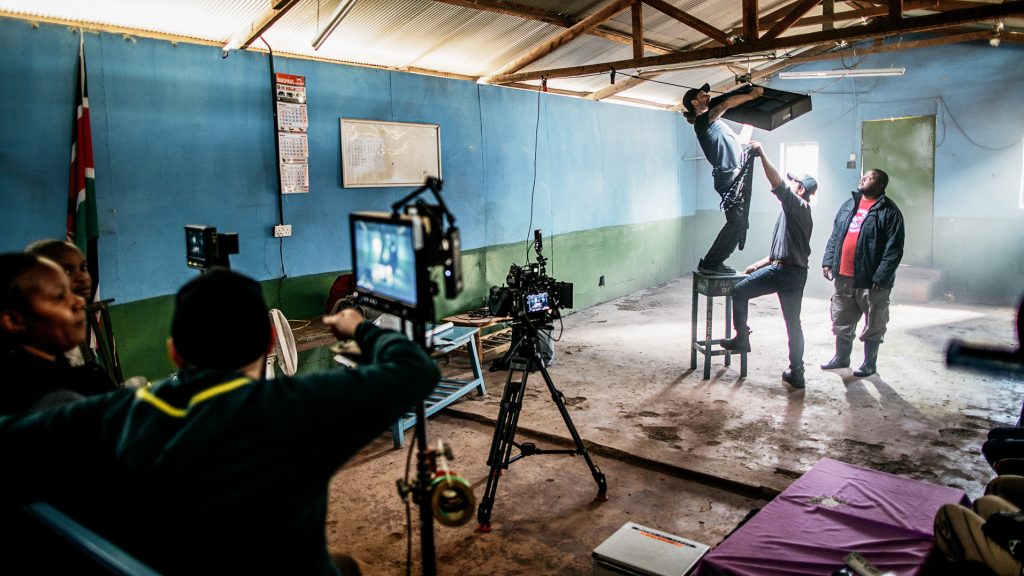
So, it’s less about living by the clock and more about using it as a reference for when your film needs to be made. Once those steps align as much as they’re going to, then maybe it’s time to say “yes.” The timing will never be perfect for any project. It can just be more right than other times — and it’s all about setting yourself up to act when that time comes.
All Spark, No Fire
I started this project because I missed out on the chance to tell the story of Frank Dymock. He was this man, this lovely man in our small hometown in Canada, that sharpened hockey skates for everybody and wouldn’t take a dime. I always promised myself I would go back and tell his story, but working as a photojournalist and traveling, I got caught up doing other things. I missed the chance. So, for me it started as a regret I guess and then it’s ended in a much more positive way where I feel like, because of learning that life lesson and kind of recognizing it, it’s allowed this project to grow and allowed these stories to be told that otherwise would not have been told. Now it’s turned into being a really great thing.
Application:
Inspiration may be a creative spark, but the nature of a spark is temporary, fleeting. A motivating force is what will keep that fire burning. Brent’s is powerful: wanting to preserve people’s legacies before they’re gone. By centering a lengthy series around one motivating idea, he’s been able to stay centered on one goal.
So what’s your driving force? It’s a great exercise for any career, creative or not, but by defining your motivation you can start using it as fuel to achieve the goals ahead of you.
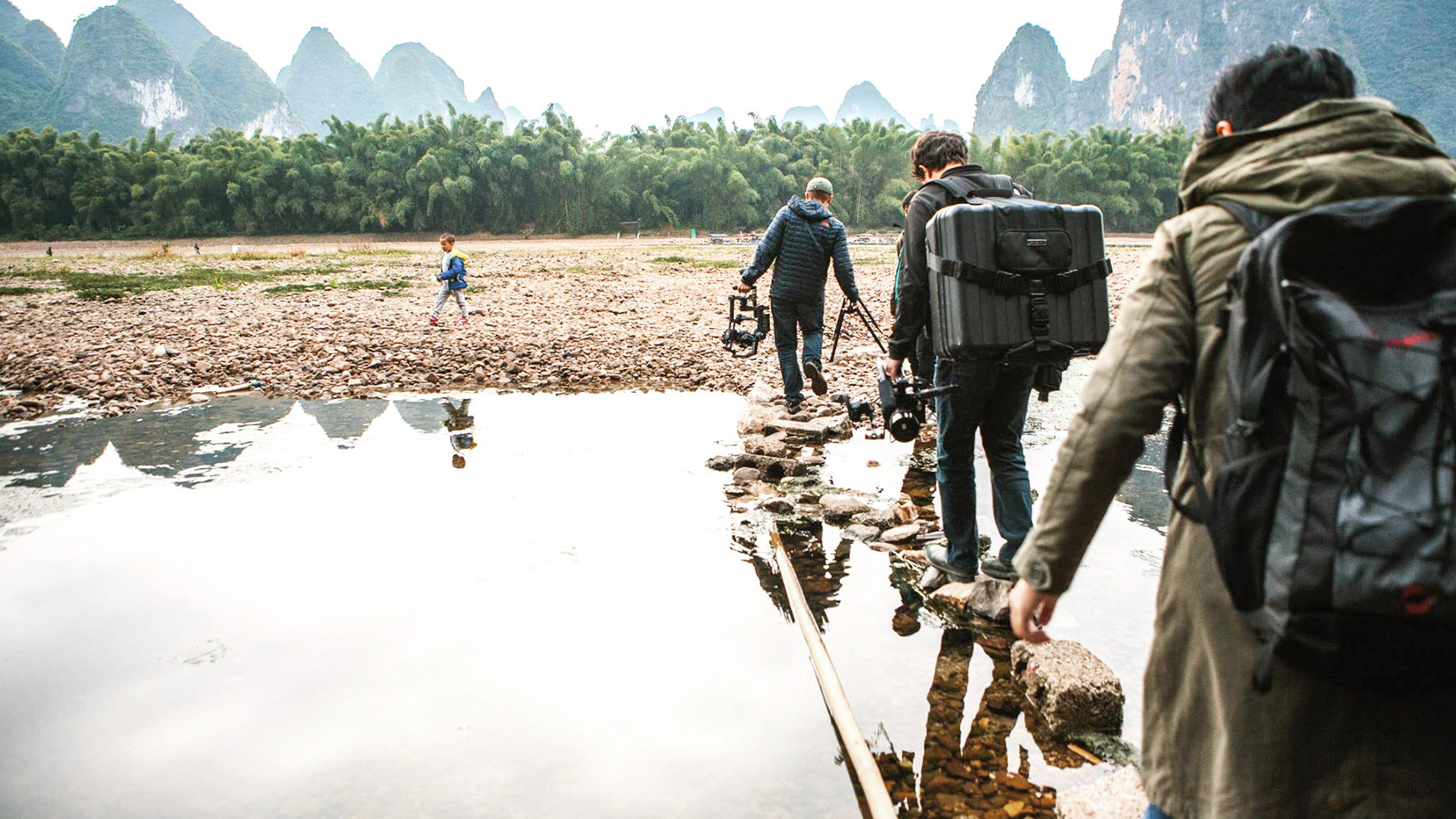
Excuses, Excuses
I’m receiving emails constantly whenever we release these stories. People are saying, “It’s really cool to see that you’re doing these passion projects. Do you have any advice on how to get out there and do projects like this — or, I have an idea, how do I make it happen?”
At the end of the day, it’s one of those things where you just have to take the initiative and just make it happen one way or another. There are so many stumbling blocks in the way — finances or gear or what you feel may be a lack of storytelling skills. You have to make yourself do it. Otherwise, you’re going to regret it and you’re missing out on the chance to fulfill the passion side of filmmaking.
Here’s a piece of advice that I heard a really long time ago from a mentor: learn to fail and don’t be afraid to fail. That’s so much easier said than done because there is, at least I feel, a lot of pressure on the passion project side and on the commercial side, that you always want your work to be better than the last thing you created.
Application:
It is easier said than done. But, as we mentioned before, no one said filmmaking was easy. If you learn to accept failure for what it is, then maybe starting a project won’t be so hard. Plus, a healthy acceptance of failure is an indicator of something else entirely: that your identity isn’t tied to the outcome of a project. Failing or succeeding with grace is one sign of a healthy mindset.
One last note on obstacles.
Notice most of Brent’s obstacles are self-imposed. We think that’s true for most filmmakers. We can be the biggest roadblocks to our own films, finding all sorts of reasons to not take the next step. Ultimately, this act of self-preservation has no place in filmmaking. As creatives, we have enough obstacles in front of us and the last thing we need is to create some on our own.
So, next time an opportunity presents itself, are you going to be your own advocate or your own obstacle? Like everything else in filmmaking, it’s entirely up to you.





































































